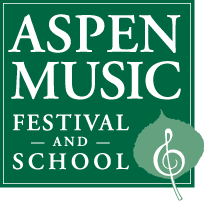« The challenge for orchestras | Main | Could It Be? Yes It Could... »
July 24, 2006
Definitions & responses
by Barbara JepsonWebster's defintion of "healthy" includes this one: "implies full strength and vigor as well as freedom from signs of disease." "Vigorous" and "flourishing" are also mentioned and, I think, apt for our discussion. So I throw these out as tools to help define what "healthy" means for music lovers, music institutions, performers and educators alike.
As for our primary topic, I definitely don't believe that classical music is dying. Nor do I think that every seemingly negative or discouraging development is necessarily bad (more on this later). But it's hard to agree that this is the best of times when there are a variety of symptoms of disease.
Bigger picture wise, I think the classical music industry is in a major transition time, and times of transition are always challenging. Some of these transitions, very much still in process, include:
1. In the orchestral world, the transition from traditional ways of selling tickets (subscriber model to single-ticket buyer model, box office/mail/phone to online sales) and, even more challenging, experimenting with all this at a time of financial challenges. Lowell Noteboom raises some important questions. But I'm not sure that figuring out how to convert single-ticket buyers to first-time subscribers should be the goal anymore. I look forward to hearing more about that from the perspective of music presenters.
2. For musicians with union contracts, the transition from traditional ways of obtaining compensation and protection to exploring new models. For example, the members of the New York Philharmonic recently opted to forego their usual flat fee up front to take a percentage of future royalties and retain ownership rights to the live recordings they're making under the aegis of DG Concerts for download. By contrast, the new provision of the Philadelphia Orchestra that Peter Dobrin noted in his July 19 article in the Philadelphia Inquirer (where 5 extra string players are presumably paid for showing up just in case someone is sick) is the old, work-rules kind of approach that has contributed to some of the financial challenges orchestras currently face.
3. For consumers, the transition from the purchase of physical CD's to online downloads(which hopefully will improve in sound quality over time)
Each of these transitions are opportunities as well as challenges, and I believe that the classical industry in the broadest sense (including critics, music lovers, etc.) has the potential to move forward in creative and vigorous ways. The question, as Lowell has noted, is what to change and how to change it without diminishing the core value--the presentation and enjoyment of the music itself.
Posted by bjepson at July 24, 2006 01:33 AM
COMMENTS
Traveling to a concert hall, usually in the center of a metropolitan area, to hear a performance is an anacronism. That's left over from the era where people would take the streetcar downtown to shop, see a movie, visit a museum, and so on.
For better or worse, we now travel to stores, restaurants, and theaters closer to home. I think it's time for performing groups to examine how to fit into this lifestyle. Dividing the season amongst multiple venues is one way to do this, but I think the collective creativity of the people involved with this blog could yield additional ideas.
The San Francisco Bay Area, where I live, is a prime example of this. I have to drive fifty miles each way to hear the San Francisco Symphony. (No, public transportation doesn't work well for these distances.) They do have a "run-out" series in a nearby suburb, but those are evening performances that run too late to be compatible with our work schedule. And the series features just a fraction of the season's offerings.
If I could go to another nearby community to hear one of the matinees that we now have to drive so far to attend, it would be the best of both worlds.
Posted by: Garth Cummings at July 24, 2006 10:12 PM
Post a comment
Tell A Friend


